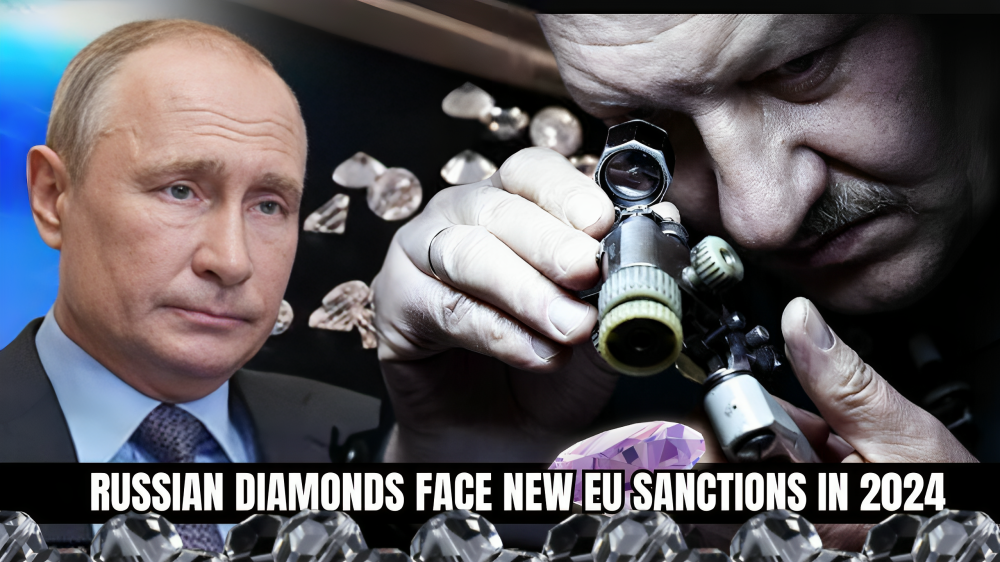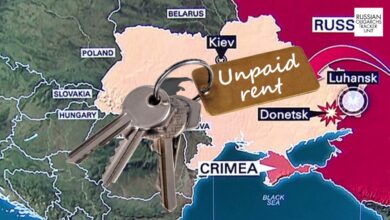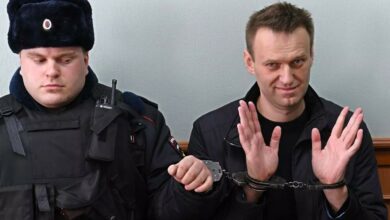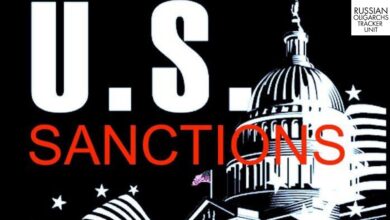
Russian Diamonds | EU sanctions proposal
The European Commission has sent member states an official proposal for a new round of sanctions against Russia, to implement Russia Diamonds Ban.
1. Introduction
The European Union (EU) is set to implement new sanctions on Russia, including a proposed ban on the import of Russian diamonds. These measures are part of the EU’s ongoing efforts to address the conflict in Ukraine and curtail Russia’s actions. The ban on Russian diamonds aims to cut off a significant source of revenue for the Kremlin and prevent the circumvention of existing sanctions. This article delves into the background of the EU’s sanctions against Russia, the proposed ban on Russian diamonds, and the measures to prevent sanctions circumvention.
2. Background on EU Sanctions against Russia

Since Russia’s full-scale invasion of Ukraine in February 2022, the EU has imposed multiple rounds of sanctions targeting various sectors of the Russian economy. These sanctions have included restrictions on energy exports, banking, and other key industries. While these measures have had an impact on Russia’s economy, the Kremlin has managed to sustain its military spending and evade some of the restrictions.
3. Proposed Ban on Russian Diamonds

One of the key elements of the EU’s new sanctions package is a ban on the import of Russian diamonds. Russia is the world’s largest producer of rough diamonds, with a significant portion of global diamond supply coming from mines beneath the Siberian permafrost. The proposed ban would apply to both natural and synthetic diamonds, as well as jewelry incorporating these diamonds.
Impact on the Diamond Trade
The ban on Russian diamonds would have significant implications for the global diamond trade. Currently, more than 80% of all rough diamonds traded worldwide pass through the diamond capital of the world, Antwerp in Belgium. Russia has been a major supplier of rough diamonds to the diamond industry, and a ban on their imports would disrupt the supply chain and potentially lead to higher prices.
Concerns over Ethical Implications
Beyond the economic impact, there are ethical considerations surrounding the import of Russian diamonds. Critics argue that buying Russian diamonds directly contributes to financing the war in Ukraine, as a significant portion of the revenue from diamond exports flows to the Kremlin. These diamonds have been referred to as “conflict diamonds” or “blood diamonds,” as they are used to fund warfare and human rights abuses.
4. Measures to Prevent Sanctions Circumvention
In addition to the diamond ban, the EU’s new sanctions package includes measures aimed at preventing sanctions circumvention by Russia. These measures focus on tightening the oil price cap and tracking clandestine transfers at sea to hinder the Kremlin’s ability to evade restrictions.
Strengthening the Oil Price Cap
The EU introduced a price cap of $60 per barrel of crude oil in December 2022 as part of its sanctions on Russia. However, there have been concerns that traders have been offering additional sums to secure cargos, falsely claiming that these additional costs are for transportation. The proposed changes would require more detailed reporting on the ancillary costs associated with Russian oil shipments, making it harder for traders to bypass the price cap.
Tracking Clandestine Transfers at Sea
To further prevent sanctions circumvention, the EU aims to improve tracking of clandestine transfers of Russian crude oil at sea. This measure seeks to address the issue of tankers carrying Russian oil and falsely declaring lower prices. By enhancing oversight and monitoring of these transfers, the EU hopes to close existing loopholes and ensure more effective enforcement of the oil price cap.
5. The Role of the G7 in Tracing Russian Diamonds
The proposed ban on Russian diamonds is part of a broader effort by the G7 to establish a system for tracing the origin of these precious stones. Diamonds pass through multiple hands before reaching the market, making it challenging to determine their exact origin. The lack of traceability has made the diamond trade attractive to criminal activity and has hindered previous attempts to enforce restrictions on Russian diamonds. The G7’s collaborative approach aims to develop a transparent and effective traceability mechanism.
6. Belgium’s Role in the Diamond Trade
Belgium, home to the world’s largest diamond trading market in Antwerp, has played a significant role in shaping the EU’s approach to the ban on Russian diamonds. Belgium has been cautious about implementing a ban, as it feared that the diamond trade would simply shift to other locations if it acted unilaterally. However, Belgium has worked closely with the European Commission and the G7 to develop a coordinated approach that addresses both ethical concerns and the need to protect its diamond industry.
7. Ban on Russian Liquefied Petroleum Gases
Alongside the ban on diamonds, the EU’s new sanctions package also includes a ban on the import of Russian liquefied petroleum gases (LPG) such as propane and butane. LPG is commonly used for heating appliances and cooking equipment. This measure responds to a request from Poland and the Baltic states, which are significant buyers of Russian LPG. By imposing a ban on LPG imports, the EU aims to further limit Russia’s export revenue and increase pressure on the Kremlin.
8. Push for Visa Ban and Asset Freeze Blacklist
In addition to the bans on diamonds and LPG, the EU is pushing for a visa ban and asset freeze blacklist that would target individuals and entities involved in Russia’s military, defense, and IT sectors. The proposed blacklist includes over 120 individuals and entities, including those responsible for human rights violations, forced “re-education” of Ukrainian children, and propagandists. The visa ban and asset freeze measures aim to hold accountable those who undermine Ukraine’s sovereignty and territorial integrity.
9. Targeting Actors from the Russian Military, Defence, and IT Sectors
The EU’s proposed sanctions package specifically targets actors from the Russian military, defense, and IT sectors. These measures aim to disrupt Russia’s military capabilities and limit its access to advanced technologies. By imposing restrictions on key economic operators in these sectors, the EU seeks to curtail Russia’s ability to further escalate the conflict in Ukraine and pose a threat to regional stability.
10. Addressing Human Rights Violations
The EU’s new sanctions package also aims to address human rights violations committed by Russia. This includes targeting individuals and entities involved in holding “so-called elections” in areas seized by Moscow and those responsible for the forced “re-education” of Ukrainian children. By imposing sanctions on those involved in human rights abuses, the EU seeks to send a strong message of condemnation and deter further violations.
11. Timeline for Approval and Implementation
The proposed ban on Russian diamonds and the broader sanctions package will require unanimous approval from all 27 EU member states. Ambassadors from the member states will hold discussions on the sanctions package, and a final decision is expected to be reached in the coming weeks. Once approved, the ban on diamonds would come into effect from January 2024, with a phased-in approach to prevent the processing of Russian diamonds in third countries. The timeline for implementing the other measures will depend on the specific provisions outlined in the sanctions package.
12. Conclusion
The proposed ban on Russian diamonds and the comprehensive sanctions package reflect the EU’s determination to address the conflict in Ukraine and curtail Russia’s actions. These measures target key sectors of the Russian economy, including the diamond trade and the energy sector. By imposing restrictions and enhancing traceability mechanisms, the EU aims to cut off a significant source of revenue for the Kremlin and prevent sanctions circumvention. The approval and implementation of these measures will require close coordination and unanimous agreement among EU member states.




